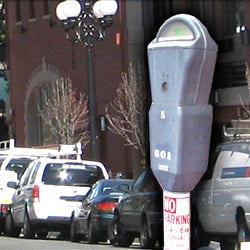Internet Safety Guidelines


Cyberspace is a gigantic community of millions, where people research information for school, learn about movies, shop, listen to music, watch video clips, even develop sites of their own. Below are some guidelines to help you stay safe while on the internet.
Personal Information
Never give your full name, address, phone number or school name to anyone online until you have asked your parents. Never give away your passwords to anyone but your parents (not even to your best friends).
Open Communication with Parents
Always tell your parents if you see something that makes you feel uncomfortable or scared. Do not respond to anything online that you believe is wrong or makes you feel uncomfortable, just tell your parents.
Sharing
Never send someone your picture or anything else, unless your parents say it is ok. Also, never send a picture of anyone else. Never accept anything from anyone online, in person, or in the mail from anyone you have met online.
Chat Rooms
When someone is posting a message in a chat room, you have no way of knowing who that person really is. Even though being someone different might seem cool to you, some use it as a way to meet people they want to harm. Never say anything in a chat room that you wouldn't say in public. Some chat rooms have monitors or speakers who can kick people out of the room for inappropriate behavior.
If you meet someone online and strike up a good relationship with them, they may want to go into a private chat room. If this is the case be very careful and always get your parent’s permission before doing so. These private chat rooms are less protected and your parents need to be aware of what you are discussing and who you are chatting with.
Harassment
When you are in a chat room you may get messages that are harassing, demeaning or just plain mean. If someone sends you messages or images that are inappropriate, harassing or threatening tell you parent right away.
Meeting
Never meet someone in person that you met online unless your parents say it is ok and they go with you to meet them. The person you have met online may not really be who they say they are and/or may want to harm you in some way. Making your parents aware of who you are meeting, when you are meeting them and where you are meeting them is important and a parent should go with you.
Family Rules
Your family should talk about specific rules for going online. Decide how much time you spend online, sites you can visit and time of day you can be online. Also, decide where the computer will be located in the home. In addition to these specific family rules also consider the rules listed below (some of which we have already covered):
- Never tell anyone online that you're home alone.
- If anyone online does anything that bothers you, tell a parent or teacher.
- Never send pictures online of yourself, friends, or family.
- Never meet with anyone you've met online unless your parent says it is ok and goes with you.
- Never share your password with friends.
- Never respond to messages that are suggestive, obscene, threatening, or make you feel uncomfortable. Tell your parents right away.
- Never give out identifying information online (name, picture, age, address, school name, telephone number, etc.).
- Do not download content without your parents' permission.
- Do not fill out any "fun" questionnaires that people forward to you, even if they are from friends. All of the personal things about you could end up in the hands of someone who could want to use them to harm you.























